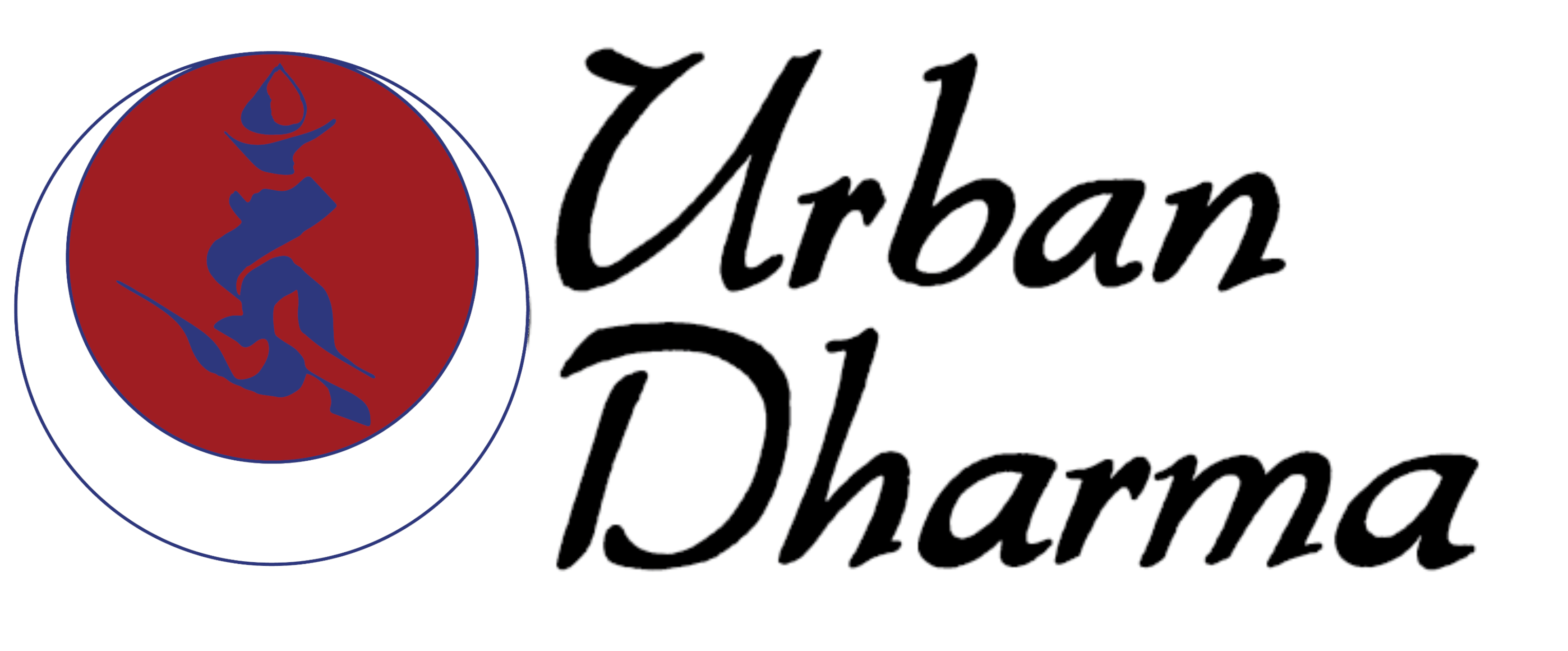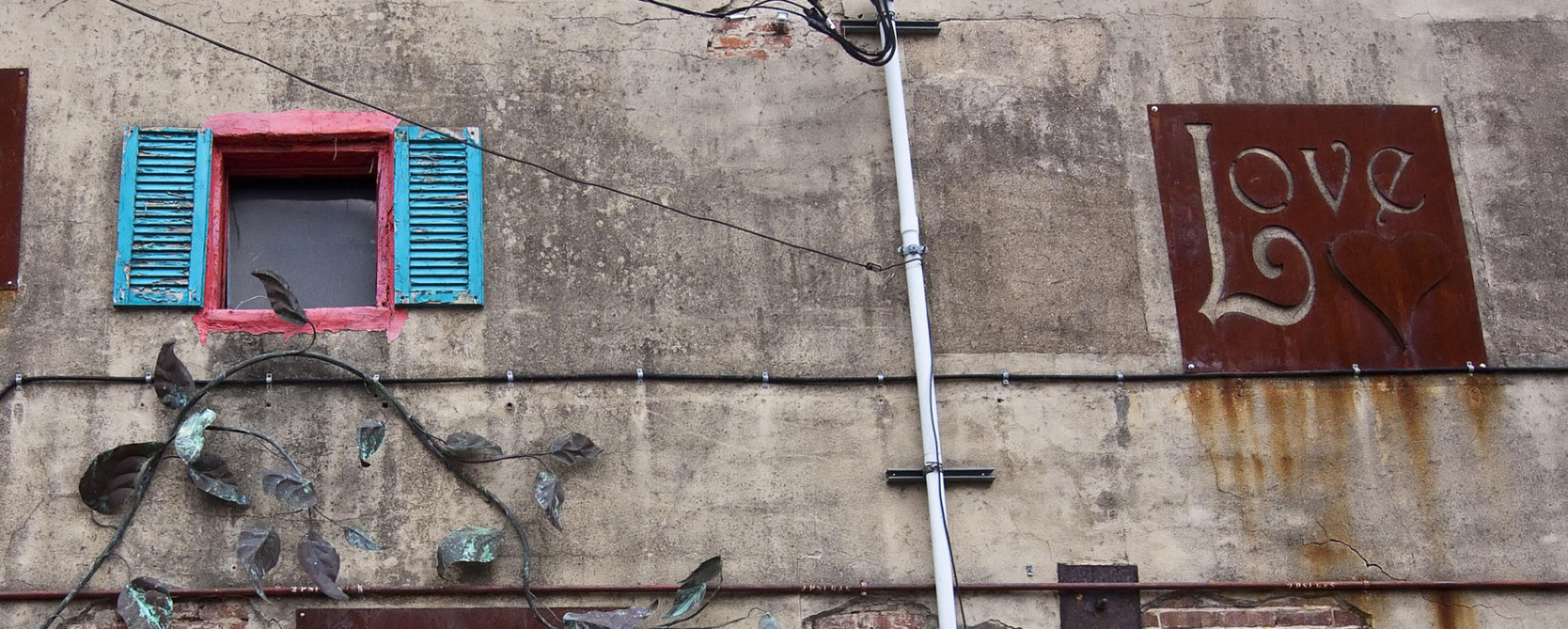
Our Story
Our mission
Founded in 2011, Urban Dharma NC’s mission is to foster a deeper understanding of the teachings of the Buddha, build meaningful community, and integrate contemplative teachings into everyday, ordinary life. Located in the heart of West Asheville, Urban Dharma exists for both self-identifying Buddhist practitioners as well as the broader Asheville community and its visitors. We offer a meditation space to sit and be quiet; a consecrated shrine to experience the sacred and be blessed; a place to hangout with friends, tea, or a book; and a social space for community wellness, artistic, cultural and spiritual events. Although many of our core members and volunteers are connected with the Drikung Kagyu Lineage of Tibetan Buddhism, we are a non-sectarian, public Buddhist temple open to all seeking refuge and sanctuary.
Our vision
Urban Dharma NC is a Buddhist temple in the heart western North Carolina. We are committed to growing the Dharma locally, in order for the Buddha’s teachings to take root in our lives here in this corner of the world, in the soil of these Appalachian mountains. Our motto “Changing Minds, Transforming Cities” expresses the vision of living the transformative teachings of the Buddha in the contemporary, urban context where we ground our lives. At Urban Dharma, we emphasize integrating rather than compartmentalizing, engaging rather than retreating, and communing rather than isolating. We believe that Buddhist teachings have much to offer – not only to those who self-identify as Buddhist but more fundamentally to all who seek to live intentional, compassionate, and balanced lives. And we believe that we can do this best when we have a community that is welcoming, open, and supportive.
Our Spiritual Advisors
Our work at Urban Dharma North Carolina is inspired & guided by two prominent Buddhist teachers who kindly serve as our Spiritual Advisors.
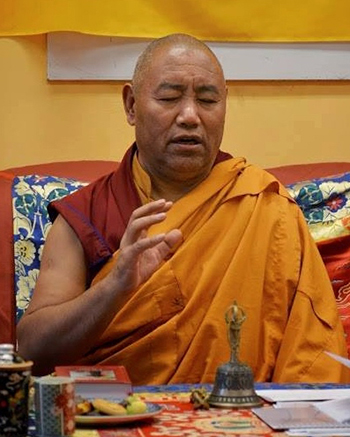
Khenchen Rinpoché
Khenchen Konchog Gyaltshen Rinpoché was born in 1946 near Mount Tsari in southwestern Tibet. In 1959 his family became refugees in India when the Communists invaded Tibet. Rinpoché attended school in India and in 1968 took monk’s vows from Kyabjé Kalu Rinpoché. Later he became one of the first to graduate from the then newly established Central Institute of Higher Tibetan Studies in Varanasi. Among the great teachers Rinpoché received teachings from were the 16th Karmapa and Khunu Lama Rinpoché. Rinpoché also completed a 3-year retreat at Lamayuru Monastery in Ladakh under the guidance of Vajradhara Kyungka Rinpoché. In later years, Rinpoché also received teachings from the tripön of Drigungtil Monastery, Vajradhara Pachung Rinpoché and his successor Vajradhara Gelong Tenzin Nyima Rinpoché. In the 1980s, Rinpoché arrived in the United States and established the Tibetan Meditation Center (which is now in Frederick, Maryland), as well as other centers across the country over the next twenty years. During this time he translated critical Drikung Kagyu practices, prayers and histories into English; and published altogether thirteen highly regarded books. Among them are Great Kagyu Masters, In Search of the Stainless Ambrosia, Jewel Ornament of Liberation, A Complete Guide to the Buddhist Path, Opening the Treasure of the Profound and Wheel of Wisdom. In 2001, Rinpoché was formally enthroned as the “khenchen” (“great khenpo“) of Drikung Kagyu Lineage by His Holiness Drikung Kyabgön Chetsang Rinpoché.
Everyone who has met Rinpoché can immediately recognize his utmost adherence to the pure vows of training and an unwavering compassion for all. In teaching Dharma, he always emphasizes the importance of letting Dharma penetrate our hearts rather than chasing after so-called “higher” teachings or practices or engaging in empty ritualism. Rinpoché’s teachings are thoroughly grounded in the unique view of Kyobpa Jikten Sumgön, founder of Drikung Kagyu. After retiring from the Tibetan Meditation Center, Rinpoché has maintained a true state of “homelessness,” not establishing any personal abode anywhere, but going anywhere the Dharma is needed. Khenchen Rinpoché continues to teach at monasteries in India, Nepal and Tibet and at many centers and groups in Asia, Europe and the Americas.
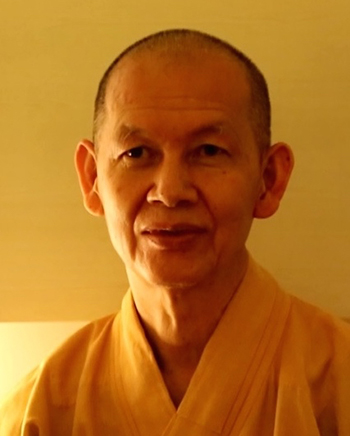
Venerable Wei Wu
Venerable Wei Wu (Shifu) was born in 1949 into a prominent Chinese-Malaysian family in Penang, Malaysia. After completing high school in Penang, Shifu attended University of Canterbury, New Zealand, and it was while there that he met many Buddhist teachers who greatly inspired him. Among them were Ven. Sangharakshita who founded the “Friends of Western Buddhist Order,” Lama Thubten Yeshé who founded “Foundation for the Preservation of the Mahayana Tradition”, and Sasaki Roshi, a well-known Rinzai Zen master.
After graduating with a degree in electrical engineering, Shifu returned to Malaysia and worked for Hewlett Packard for twelve years, before starting his own “Total Quality Management” (TQM) consultancy company in 1987. Hewlett Packard, Procter and Gamble, Philips, Fiat and Astec were among his clients. Through this period of his life, the future Venerable Wei Wu was active as a lay Buddhist leader in Malaysia. In 1992, at the age of 43, Shifu took the step to become a Buddhist monk in the Chinese Mahāyāna tradition. Shifu’s activities to benefit beings grew exponentially from the moment he took up monastic life.
Over the next decade, Shifu founded Than Hsiang Temple, “Metta Free Clinic” (offering free medical services, both traditional Chinese medicine and Western medicine, to the under-served), “Mitra Welfare Centre” (a 24-hour counseling hotline), “Wan Ching Yuen” (geriatric care center) and the “International Buddhist College” in Thailand. Shifu has also taken the lead in expanding and upgrading Phor Tay School – one of only two remaining public schools in Malaysia with a clear and distinct Buddhist identity. Shifu has become an example of a socially-engaged Buddhism in the region, utilizing his expertise in TQM to actualize bodhisattva activities of compassion extolled in traditional Buddhist texts. Aside from his own teachers in the Chinese tradition – the late Venerable Xiu Jing (of the Linji Chan lineage), the late Venerable Bo Yuan (of the Caodong Chan lineage) – Shifu feels a special affinity with the late Drubwang Konchog Norbu Rinpoché (Drikung Kagyu), and Khejok Rinpoché (Geluk). Venerable Wei Wu considers the Pure Land methods of practice to be his main spiritual discipline.
Our Founder & Spiritual Director
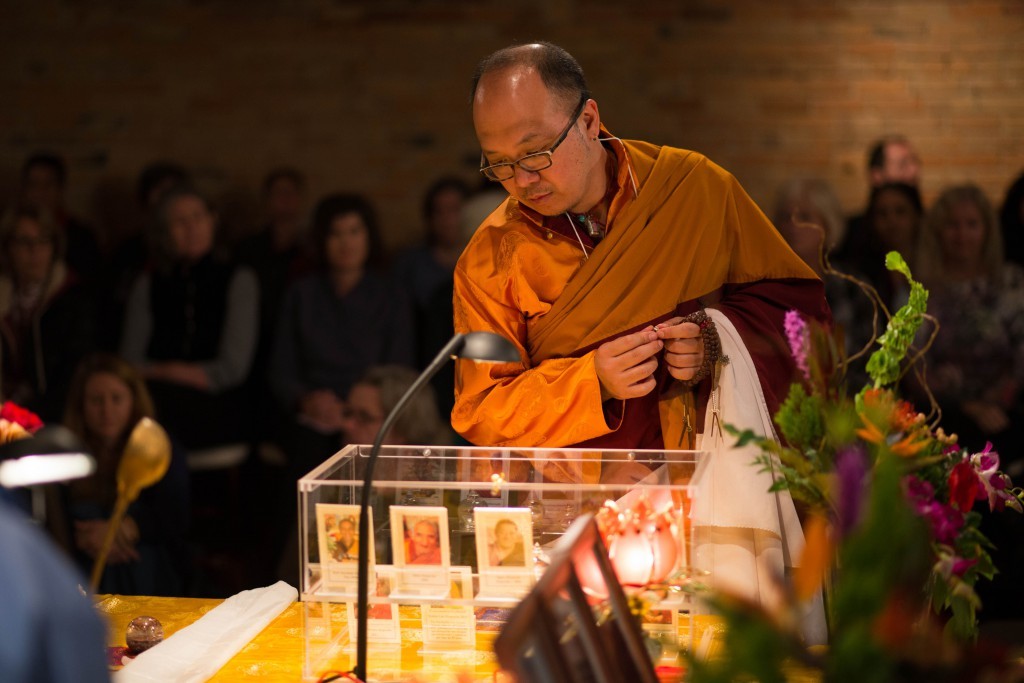
Dr. Hun Lye, Dorjé Lopön
Dr. Hun Lye (Könchok Yedor) was born and raised in a Buddhist family with a very devout paternal grandmother in Penang, Malaysia. From a very young age, all matters related to religion, ritual and mythology were of special interest to him. While learning about all the major world religions and spiritualities with keen interest, Dr. Lye felt a particular natural affinity to Buddhism. As a child, he often accompanied his grandmother to a local nunnery and spent much time there. Like many Buddhists in Malaysia, Dr. Lye considered the differences between Theravada, Mahāyāna and Vajrayāna forms of Buddhism to be ultimately inconsequential and all of them equally represented the legacy of the Buddha. As Dr. Lye often puts it: “Buddhism is Buddhism is Buddhism.” Thus Dr. Lye earnestly practiced the teachings of the Buddha without partiality. In high school (Penang Free School), he was a leader of the Buddhist students’ society which was primarily grounded in the Theravada tradition of the Sri Lankan, Burmese and Thai varieties. At the same time, he venerated the late Venerable Master Hsuan Hua of the City of Ten Thousand Buddhas in Ukiah, California as his Refuge and Lay-Precepts master. To formally receive his Refuge-vows, Dr. Lye was required by the Venerable Master to complete 50,000 prostrations and so he earnestly completed them as a teenager.
In 1989, Dr. Lye came to the United States to attend college. It wasn’t until then that Dr. Lye became exposed to teachers of the Tibetan tradition. Dr. Lye met his first Drikung Kagyü teacher, Drupön Sonam Jorphel Rinpoché who was then visiting the US from Nepal for the first time. That was the start of a natural journey that led to Dr. Lye’s primary lineage identity and affiliation as Drikung Kagyü. Later, while in graduate school at University of Virginia, Dr. Lye mainly served and learned from Khenchen Konchog Gyaltshen Rinpoché at the Tibetan Meditation Center in Frederick, Maryland, USA.
In 2003, Dr. Lye earned a doctorate degree in Religious Studies (specializing in Buddhism) from University of Virginia. For the next ten years, Dr. Lye taught religious studies at two American academic institutions in North Carolina while at the same time supporting a small but burgeoning Buddhist community in Asheville, North Carolina. During this period, Dr. Lye also led several pilgrimage and study-tours to Tibet, Ladakh and Nepal. The community that Dr. Lye supported in North Carolina slowly evolved into the founding of Urban Dharma North Carolina in 2011. By mid 2012, Dr. Lye started to transition from his career in academia into a full-time Dharma-teacher. In 2013, soon after Dr. Lye made the final decision to leave the secular, Western academic field, His Holiness Drikung Kyabgön Chetsang Rinpoché (Head of the Lineage) appointed Dr. Lye as a “dorjé lopön” (lit. “vajra-master”) of the Drikung Kagyü Lineage and was formally enthroned and charged with the responsibility of transmitting the teachings and practices of the lineage that he has himself received and practiced well. Soon after the enthronement, Dr. Lye was sent by His Holiness to visit and teach at Drikung centers in South America. Since then, Dr. Lye has been dividing his time between serving as His Holiness’ special assistant in various projects in Asia, North and South America and supporting to Buddhist community at Urban Dharma. Dr. Lye also teaches on a regular basis over the Internet to groups in Malaysia, Peru, Guatemala, and Little Rock, Arkansas (USA).
Meet Our People
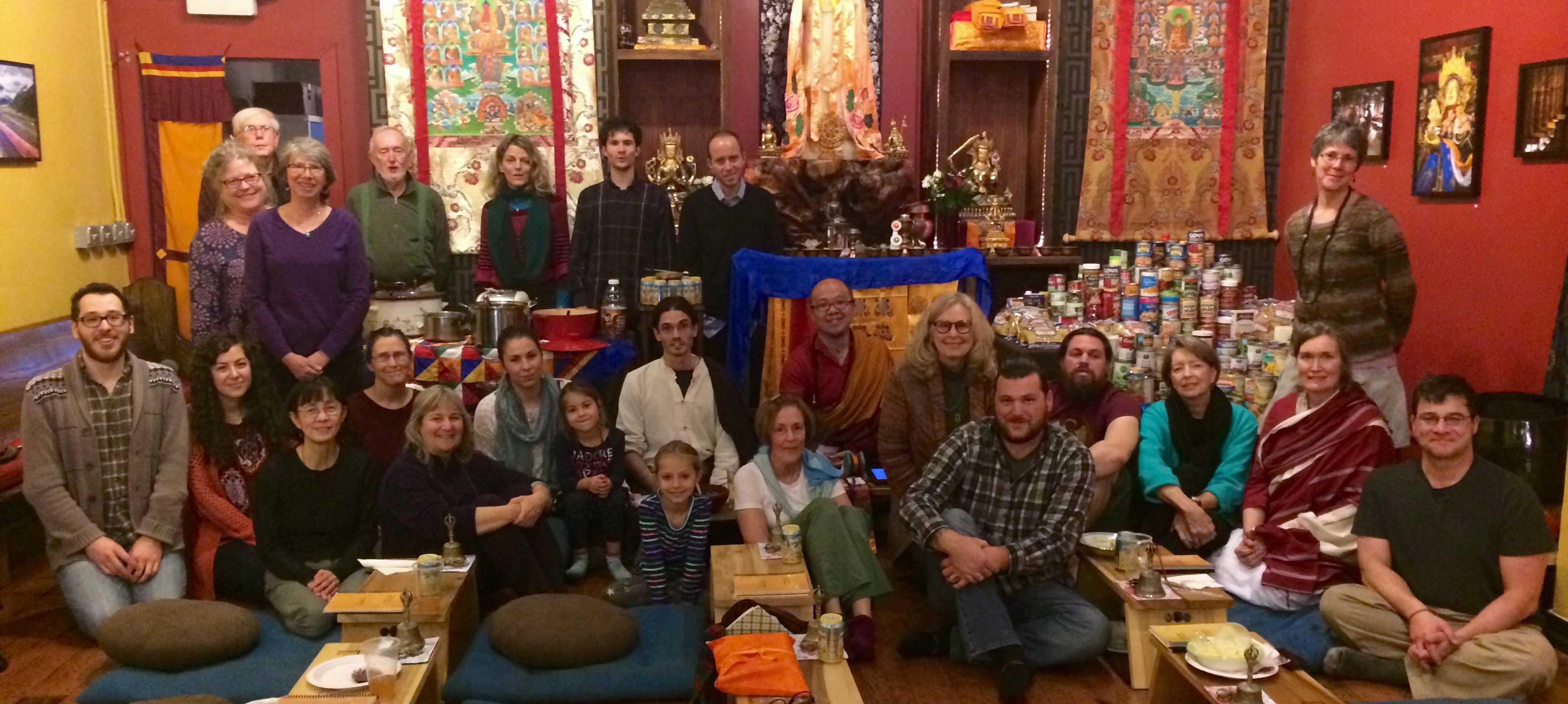
Board of Directors
Urban Dharma NC is Buddhist church registered in the State of North Carolina [and for taxation purposes falls under the United States’ tax exempt laws for churches, IRC Section 501(c)(3)], governed by a board of directors with a fiduciary responsibility especially in the area of strategic planning and financial oversight.
Bill Laity
Daniel Fishburn
Hun Lye
Joseph Nabholz
Judy Fore
Tim Cross
Nathan Koerschner
Mariana Howerton-Restrepo
Coordinators & Facilitators
The most important part of Urban Dharma NC is our community and at the heart of this community are our volunteers. Volunteers do the majority of the myriad of daily, weekly, seasonal tasks and projects necessary to fulfill our mission of serving others.
Robin Minnick, communications
John Walters, program coordinator
Nathan Abram, communications
Joseph Nabholz, programming coordinator
Judy Fore, programming coordinator
Larry Ward, temple facilities coordinator
What We Offer
Apart from the regularly scheduled programs we offer at Urban Dharma, we are also able to provide the following services at request.
Lamp-offering & Special Prayers
The Sutra on the Wise and Foolish tells the story of Nanda, a beggar-woman who could only afford to offer the Buddha a small lamp with barely any oil. Though her offering was minuscule compared to all the other lamps offered on that occasion, Nanda made her offering with the pure motivation that her lamp become a cause for dispelling the darkness of ignorance in her mind, so that she too could become a buddha in the future and thus universally benefit all beings. In that story, Nanda’s lamp is said to have outshined and outlasted all the other lamps offered to the Buddha that day. Lamp-offerings thus play a central role in the lives of many Buddhists.
Lamp-offerings rituals can be performed for any and all occasions: during personally challenging times (an illness, work-place stress, or relationship upheavals); in celebration of any joyous occasion (birthdays, anniversaries, graduations, housewarmings, or weddings); for dedicating merit to and in memory of the deceased; or to celebrate special holy days. You can request a formal lamp-offering at Urban Dharma and we will do our best to schedule the offering. We request a suggested donation of $108, though any amount within your means is acceptable of course. To schedule an offering, contact us through the “Hours & Contact” tab above. You are also welcome to make less formal, more personal lamp-offerings at our 21 Tārās wall anytime the temple is open.
House/Land Blessing & Protection
The Buddha taught that the best form of blessing and protection is developing bodhicitta—the altruistic, other-centered heart that transcends self-centeredness. Anyone who has such a heart is continuously blessed and protected, and naturally offers blessings and protection to others. Even a simple gaze or a light touch from such a person is enough to imbue blessings and protection on any person, object, or space. At the same time, like many other spiritual traditions around the world, Buddhism also has developed special ritual practices. When a person is properly trained within the context of an authentic and uninterrupted lineage of teachers, he or she can then employ these rituals to impart blessings and protection to others.
At Urban Dharma, our spiritual director and visiting teachers are able to offer practices within the Tibetan Buddhist tradition such as trüsol (removal of negative spirits, stale energies, and malevolent spirits through a ritual cleansing with mantra-infused water); rabné (consecration of sacred objects, personal shrines, land, and other physical spaces); lhasang (cleansing and amending one’s relationship with local spirits, deities, and entities through use of aromatic smoke); and yangguk (summoning the energies of abundance and auspiciousness). These rituals are often performed at the site where blessing and/or protection is needed. For more information or to schedule a ritual, contact us through the “Hours & Contact” tab above.
Spiritual guidance
Life in the 21st century in many developed countries such as the United States is full of ironies and contradictions. While the advantages of living in such time and place are undeniable with its technological, scientific, and medical advances, we are also increasingly becoming aware of the shadows of an existence that is focused so heavily on consumerism and progress. The dissatisfaction and “dis-ease” we feel is what the Buddha called saṃsārā—an endless cycle of confusion and conflict. And saṃsārā remains saṃsārā if all we are doing is tweaking with impermanence, case-managing confusion, or painting over stress & suffering. While stress and suffering are the defining characteristics of saṃsārā, the good news is that saṃsārā is optional. Just as there is saṃsārā, there is also nirvāna— a state of complete freedom. The historical Buddha provided simple but yet profound and pragmatic answers to the existential problems of stress and suffering and a pathway to peace and true joy that persists even in the face of hardship. If you would like support learning about this path or even perhaps just a “second opinion” on whatever it is in your life that is causing you stress and suffering, we invite you to make an appointment with our spiritual director. You can start this process by your requesting an initial meeting through the “Hours & Contact” tab above, and rest assured you’ll never be pressured to join Urban Dharma or charged a fee!
Rites of Passage
Our lives are punctuated with the celebration of various rites of passage that each individual goes through within the context of a community. Such rites mark the points of transition that are of greatest consequence in our lives. So, we have rituals celebrating birth, coming of age, wedding ceremonies, and finally rituals at the time of dying, upon death, and in memory of the dead. Buddhist cultures across Asia have therefore also developed rites of passages by combining the Buddha’s teachings on the significance of such transitions together with an assortment of local beliefs and practices that spoke to the societies in which such rituals came to be. At Urban Dharma, we have celebrated a number of such rites of passage for both our members and non-members alike. Our spiritual director officiates at weddings, leads memorial services, and assists with end-of-life transitions in accordance with Buddhist principles and convictions. The wedding ceremonies that our spiritual director have officiated have ranged from a simple ceremony at the temple with the new couple and a handful of witnesses and friends, to weddings with a couple of hundred family members, friends, and their pets! These couples do not necessarily self-identify as “Buddhist” but are seeking wedding officiants who can work with them to make their special day truly meaningful and unique. If you are interested in our spiritual director’s involvement in any rite of passage, contact us through the “Hours & Contact” tab above.
